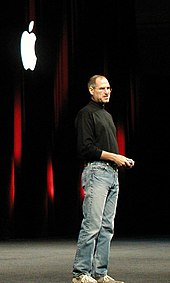Apple
Birth of Apple 🍼
The birthplace of Apple Computer. In 1976, Steve Jobs, Steve Wozniak and Ronald Wayne founded the company in the garage of his childhood home on Crist Drive in Los Altos, California.
Apple logo
The first Apple Computer logo, drawn by Ronald Wayne, depicts Isaac Newton under an apple tree.

Apple I
Apple's first product, the Apple I, invented by Apple co-founder Steve Wozniak, was sold as an assembled circuit board and lacked basic features such as a keyboard, monitor, and case. The owner of this unit added a keyboard and wooden case.

Apple Inc.
Apple Computer, Inc. was incorporated on January 3, 1977, without Wayne, who had left and sold his share of the company back to Jobs and Wozniak for $800 only twelve days after having co-founded Apple.. Created by Rob Janoff in 1977, the Apple logo with the rainbow scheme was used from April of that year until August 26, 1999. Steve Jobs has asserted the apple logo was inspired by the story of his childhood.

Apple II
The Apple II, also invented by Wozniak, was introduced on April 16, 1977, at the first West Coast Computer Faire. It differs from its major rivals, the TRS-80 and Commodore PET, because of its character cell-based color graphics and open architecture.

MACINTOSH AND THE "1984" COMMERCIAL
By 1984 computer dealers saw Apple as the only clear alternative to IBM's influence.[38] The company announced the Macintosh 128k to the press in October 1983, followed by an 18-page brochure included with magazines in December.[39] Its debut, however, was announced by a single national broadcast of a US$1.5 million television commercial.
Launch Macintosh
The Macintosh, released in 1984, is the first mass-market personal computer to feature an integral graphical user interface and mouse.
New CEO
In 1985, a power struggle developed between Jobs and CEO John Sculley, who had been hired two years earlier. In fact it was Jobs himself who had convinced Sculley to join Apple using the famous lines "Do you want to sell sugar water for the rest of your life or come with me and change the world? The Apple board of directors instructed Sculley to "contain" Jobs and limit his ability to launch expensive forays into untested products. Rather than submit to Sculley's direction, Jobs attempted to oust him from his leadership role at Apple. Sculley found out that Jobs had been attempting to organize a coup and called a board meeting at which Apple's board of directors sided with Sculley and removed Jobs from his managerial duties. Jobs resigned from Apple and founded NeXT Inc. the same year.
Launch powerbook
In 1991, Apple introduced the PowerBook, replacing the "luggable" Macintosh Portable with a design that set the current shape for almost all modern laptops. The same year, Apple introduced System 7, a major upgrade to the operating system which added color to the interface and introduced new networking capabilities. It remained the architectural basis for the Classic Mac OS.

Steve Jobs back as CEO
After numerous failed attempts to modernize Mac OS, first with the Pink project from 1988 and later with Copland from 1994, Apple in 1997 purchased NeXT for its NeXTSTEP operating system and to bring Steve Jobs back. Apple was weeks away from bankruptcy when Jobs returned.

Introduction Imac
On August 15, 1998, Apple introduced a new all-in-one computer reminiscent of the Macintosh 128K: the iMac. The iMac design team was led by Ive, who would later design the iPod and the iPhone. The iMac featured modern technology and a unique design, and sold almost 800,000 units in its first five months.

Think Different
Apple's first slogan, "Byte into an Apple", was coined in the late 1970s. From 1997 to 2002, the slogan "Think Different" was used in advertising campaigns, and is still closely associated with Apple.

Introduction of the iPhone
On January 9, 2007 Apple introduced the iPhone. The iPhone was a revolutionary product from Apple and it changed the way smart phones look in work. This video is from MacWorld 2007 were Steve Jobs introduced the original iPhone.
Release of iPad
Steve Jobs, Apple's then CEO, introducing the iPad. As of May 2017, Apple has sold more than 360 million iPads, though sales peaked in 2013. It is the most popular tablet computer by sales as of the second quarter of 2018.

Similar Timelines to Explore
Explore similar wikis on Timepath and dive deeper into the subject of Apple. Your journey through connected events and stories starts here. Missed something? We would love to hear your suggestions for additional wikis.